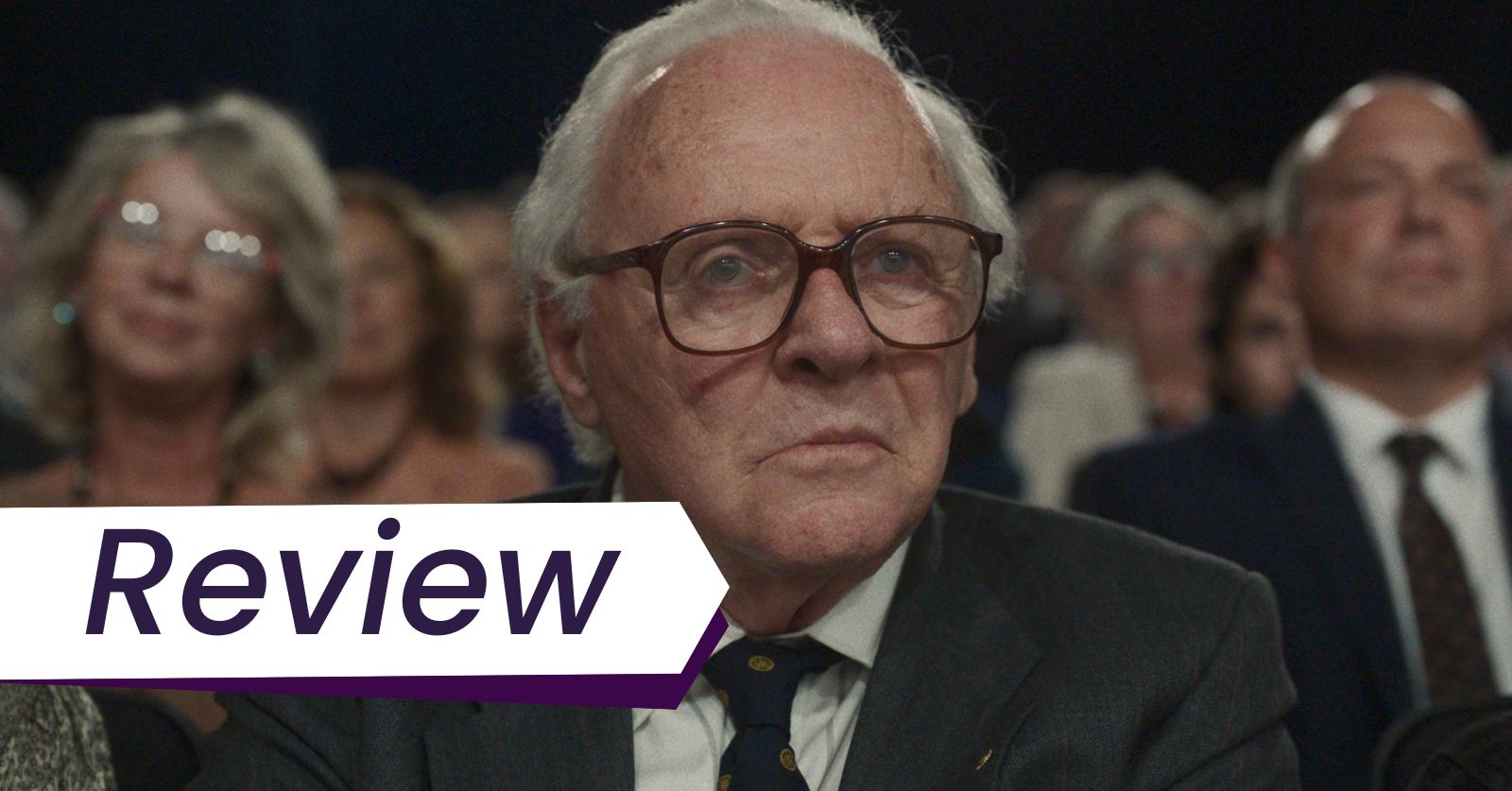Alex Heeney reviews James Hawes’s new film, One Life, a WWII drama with a strong story and an incredible cast.

Discover one film you didn’t know you needed:
Not in the zeitgeist. Not pushed by streamers.
But still easy to find — and worth sitting with.
And a guide to help you do just that.
Among the recent spate of WWII dramas about ordinary people who did extraordinary things — from the TV series Transatlantic (2023) and World on Fire to the films Operation Mincemeat (2021) to Irena’s Vow (2023) — James Hawes’s One Life, a British film, is one of the best. If there’s one thing the British film industry can dependably do, it’s turn out historical ensemble dramas with a strong enough cast to more or less compensate for any shortcomings in script and direction.
With a cast led by Anthony Hopkins and Johnny Flynn, with stalwarts Lena Olin, Jonathan Pryce, Helena Bonham Carter, Alex Sharp, and the amazing Romola Garai, the script for One Life could be even more schematic than it is and nobody would care. That is, at least, if you’re the sort of person, like me, who eats up these character dramas about a little-known part of history. I’m still usually glad I saw the mediocre ones, even if I wouldn’t recommend them to anyone who doesn’t live for this genre.
James Hawes’s One Life is the story of Nicholas Winton
One Life is the story of the unassuming Nicholas Winton, a British banker who was instrumental in saving the lives of hundreds of children in Prague just as the Nazis were marching toward invasion in the 1930s. Just as the Germans have invaded the Sudetenland (a British concession that’s the subject of another decent film of the genre: Munich: The Edge of War) in northern Czechoslovakia, Nicholas (Johnny Flynn) has planned to visit Prague for a week to do what he can to lend a hand. There, he finds hundreds of families living in slums and poverty after fleeing the Sudetenland, and he is determined to help.
While Britain’s Kindertransport evacuated Jewish children directly from Germany, there was no such infrastructure to evacuate Jewish children from Prague, many of whom were already refugees from Germany. While Nicholas’s British colleagues in Prague, Doreen Warriner (Romola Garai, stealing every scene she’s in just like she did in Suffragette) and Trevor Chadwick (Alex Sharp, so good in To the Bone and never used enough), try to warn him that he doesn’t know what he’s up against, his ignorance is perhaps what allows him to remain optimistic. Nicholas insists they must act as though they will succeed at evacuating children to Britain if they want it to happen.
A story in flashbacks
The film is told in a series of flashbacks to the 1930s as 1980s Nicholas (Anthony Hopkins) sorts through his mountains of paperwork from the time while preparing for the arrival of his grandchildren. This has become a standard practice for films about parents produced by their children (see Lee and its useless framing device). Yet it works in One Life not just because Nicholas’s work was still largely unrecognized fifty years later but because telling the world about what he did led to a new chapter in the story.
Nicholas still feels like he was only a tiny part of the project, taking on none of the risks that his comrades on the ground did. But he learns to put his contribution in perspective in a way that enriches his life (and perhaps allows his daughter Barbara Winton, who executive produced and wrote the book on which the film is based, to lionize him).
An inspirational paperwork drama – One Life film review
A paperwork drama follows although the film itself is low on the actual paperwork and high on inspiration. There isn’t the same level of Kafkaesque detail as in Christian Petzold’s Transit (2018), but we understand that saving lives requires someone willing to fill out forms and persuade people to process them. Back in London, Nicholas figures out how to get visas and parental sponsors for the children they’d like to evacuate and collaborates with the folks in Prague to make the evacuations happen.
He is helped by his assertive mother (Helena Bonham Carter), who tells the customs officials what’s what when they try to refuse to help her. Nevertheless, they face many logistical challenges, including finding enough money to sponsor all the children that British families are willing to accept. As they get better at the process, the Nazis come closer and closer to taking over Prague and ending the whole operation.
Film Review – One Life is a film about how ordinary people can do extraordinary things
Throughout the film, Nicholas insists that he’s just an ordinary man, so if he could achieve what he did, there’s no reason others can’t do their bit. Part of the power of telling Nicholas’s wartime heroics in flashbacks is seeing the elderly man he is in the 1980s. He hasn’t devoted his life to social justice battles. He’s not an activist or an organizer, though he did belong to the Good Samaritans group until they kicked him out (a funny story I’ll let you discover in the film). Instead, he’s a wealthy man who lives in a large house with his wife, and their primary concern is preparing for his expected grandchild.
The message in this, and the film, is about as subtle as a sledgehammer, but it’s a powerful one nonetheless. Everyone can make a difference, even if you think you can’t. Of course, Nicholas couldn’t save all the children, let alone all the children on their curated list of priorities. But he helped save many of them, and his optimism that they would find a way to make it happen was vital. And it’s all very moving and inspiring! So if there are schematic scenes along the way, at least we get to watch Jonathan Pryce and Anthony Hopkins pretend to be talking the way real people might.
Listen to our podcast about depictions of genocide on screen in Quo Vadis, Aida? (2020) and Our Lady of the Nile (2019)
Related reading/listening to James Hawes’s film One Life (which we review)
More WWII dramas: Christian Petzold directed two of the best WWII dramas of the 2020s: Phoenix (2014) and Transit (2018). Listen to our podcast on Transit. Sandrine Kiberlain’s A Radiant Girl (2022) and Domink Graf’s Fabian: Going to the Dogs (2021) were two of the best films of their respective years, and both are excellent films about the rise of Nazism (in France and Germany, respectively). Listen to our podcast on Fabian: Going to the Dogs.
More films about genocide: Catch up with the documentary Final Account, in which some of the last remaining living Nazis provide their testimonies of WWII. Read about the phenomenal Quo Vadis, Aida: our review of Quo Vadis, Aida?, our interview with director Jasmila Žbanić, and an interview with lead actress Jasna Duraçić. Listen to our podcast on Quo Vadis, Aida?.

